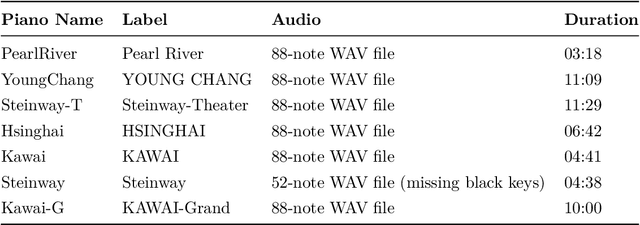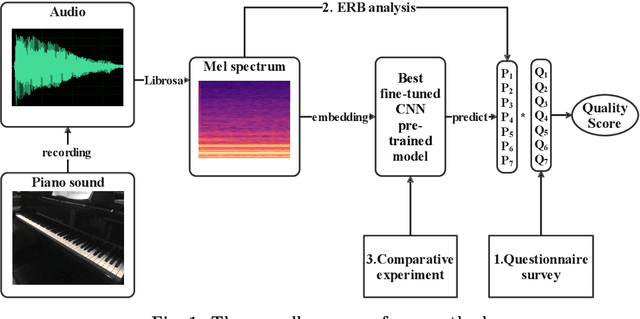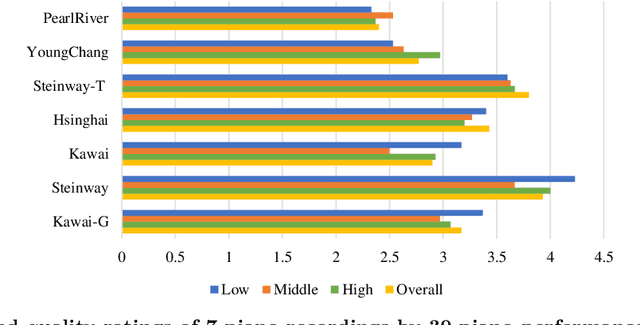A Holistic Evaluation of Piano Sound Quality
Paper and Code
Oct 07, 2023



This paper aims to develop a holistic evaluation method for piano sound quality to assist in purchasing decisions. Unlike previous studies that focused on the effect of piano performance techniques on sound quality, this study evaluates the inherent sound quality of different pianos. To derive quality evaluation systems, the study uses subjective questionnaires based on a piano sound quality dataset. The method selects the optimal piano classification models by comparing the fine-tuning results of different pre-training models of Convolutional Neural Networks (CNN). To improve the interpretability of the models, the study applies Equivalent Rectangular Bandwidth (ERB) analysis. The results reveal that musically trained individuals are better able to distinguish between the sound quality differences of different pianos. The best fine-tuned CNN pre-trained backbone achieves a high accuracy of 98.3\% as the piano classifier. However, the dataset is limited, and the audio is sliced to increase its quantity, resulting in a lack of diversity and balance, so we use focal loss to reduce the impact of data imbalance. To optimize the method, the dataset will be expanded, or few-shot learning techniques will be employed in future research.
 Add to Chrome
Add to Chrome Add to Firefox
Add to Firefox Add to Edge
Add to Edge